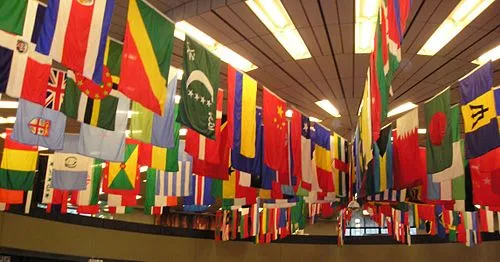
Victory Day in the Maldives: A Celebration of Freedom and Resilience
The Maldives, a tropical paradise known for its stunning beaches and crystal-clear waters, has a rich cultural heritage and a history of resilience. One of the most significant events in this history is Victory Day, celebrated annually on November 3rd. This article explores the significance of Victory Day in the Maldives, its history, and the celebrations surrounding this important national holiday.
History of Victory Day
Victory Day commemorates the successful rebellion of the Maldivian people against the coup d'état on November 3, 1988. The coup was an attempted invasion by Sri Lankan mercenaries aimed at overthrowing the then-President Maumoon Abdul Gayoom. The swift response of the Maldivian military and the courageous efforts of civilians played a crucial role in thwarting the takeover, showcasing the strength and unity of the Maldivian people.
The Significance of Victory Day
Victory Day is not just a remembrance of a historical event; it symbolizes the collective spirit of the Maldivian people and their unwavering commitment to their sovereignty. The day serves as a reminder of the importance of unity, vigilance, and resilience against external threats. It highlights the sacrifices made by the military personnel and civilians who fought valiantly during the invasion attempt.
How Victory Day is Celebrated
Victory Day is marked with a variety of celebrations across the Maldives. These events typically include:
- Military Parades: The day usually starts with a ceremonial military parade in the capital city, Malé. The parade features various units of the Maldivian Defense Force showcasing their skills and readiness to defend the nation.
- Cultural Events: In addition to military displays, cultural events are held to celebrate Maldivian heritage. Traditional music and dance performances are organized, highlighting the rich culture of the islands.
- Honoring Heroes: Memorial services are held to honor those who lost their lives during the coup attempt. Wreaths are laid at memorials, and tributes are paid to the heroes who defended the nation.
- Community Gatherings: Communities come together to celebrate with feasts and gatherings, fostering a sense of camaraderie and shared pride among the citizens.
Victory Day: A Time for Reflection
While Victory Day is a moment of celebration, it also serves as a time for reflection on the importance of democracy and the rule of law. The Maldivian populace reflects on the values of freedom, peace, and stability, which are essential for the nation's progress.
Tourism and Victory Day
For tourists visiting the Maldives during this time, Victory Day provides a unique opportunity to experience the local culture and witness the national pride of the Maldivian people. Although the celebrations primarily take place in Malé, visitors can engage with the local populace and learn about the nation’s history and its significance.
Conclusion
Victory Day is more than just a public holiday in the Maldives; it is a testament to the strength and resilience of the Maldivian people. By commemorating their past, the citizens of the Maldives reaffirm their commitment to freedom and independence, making this day a cornerstone of their national identity.






